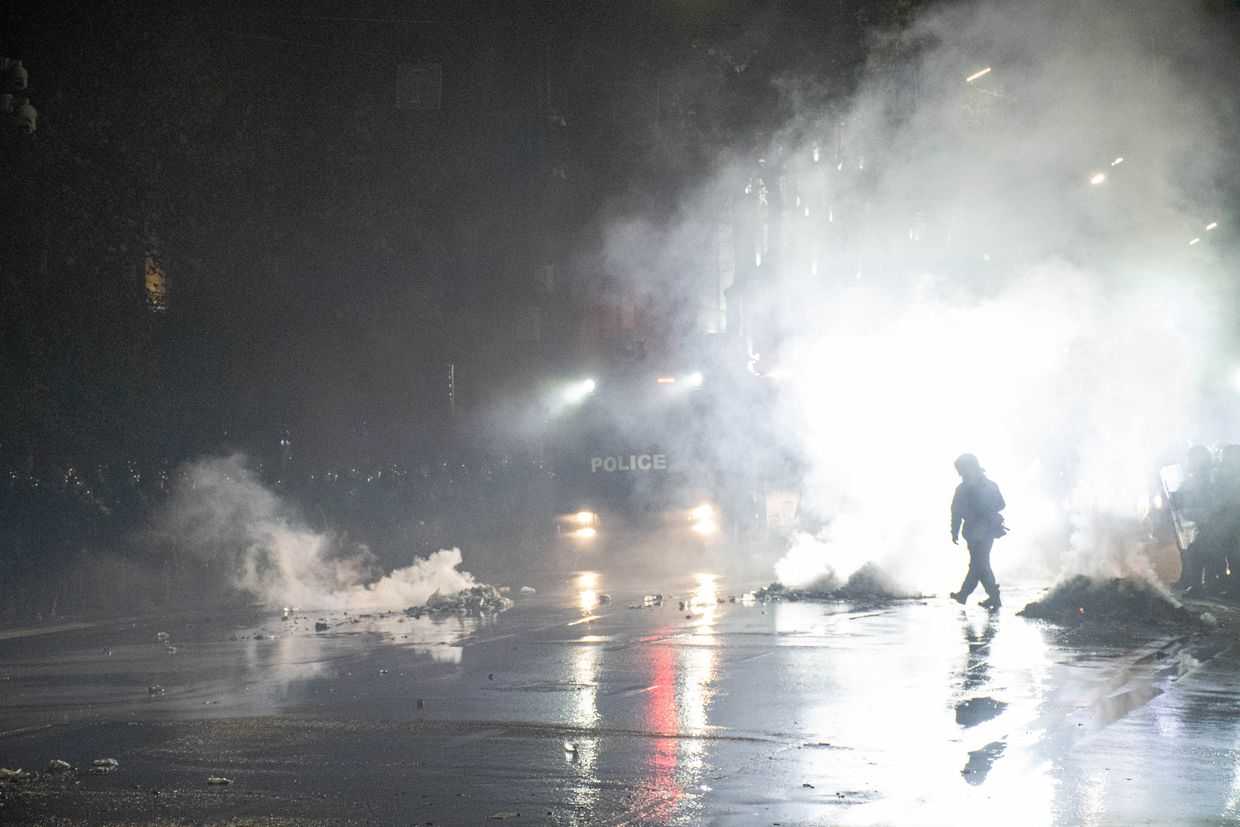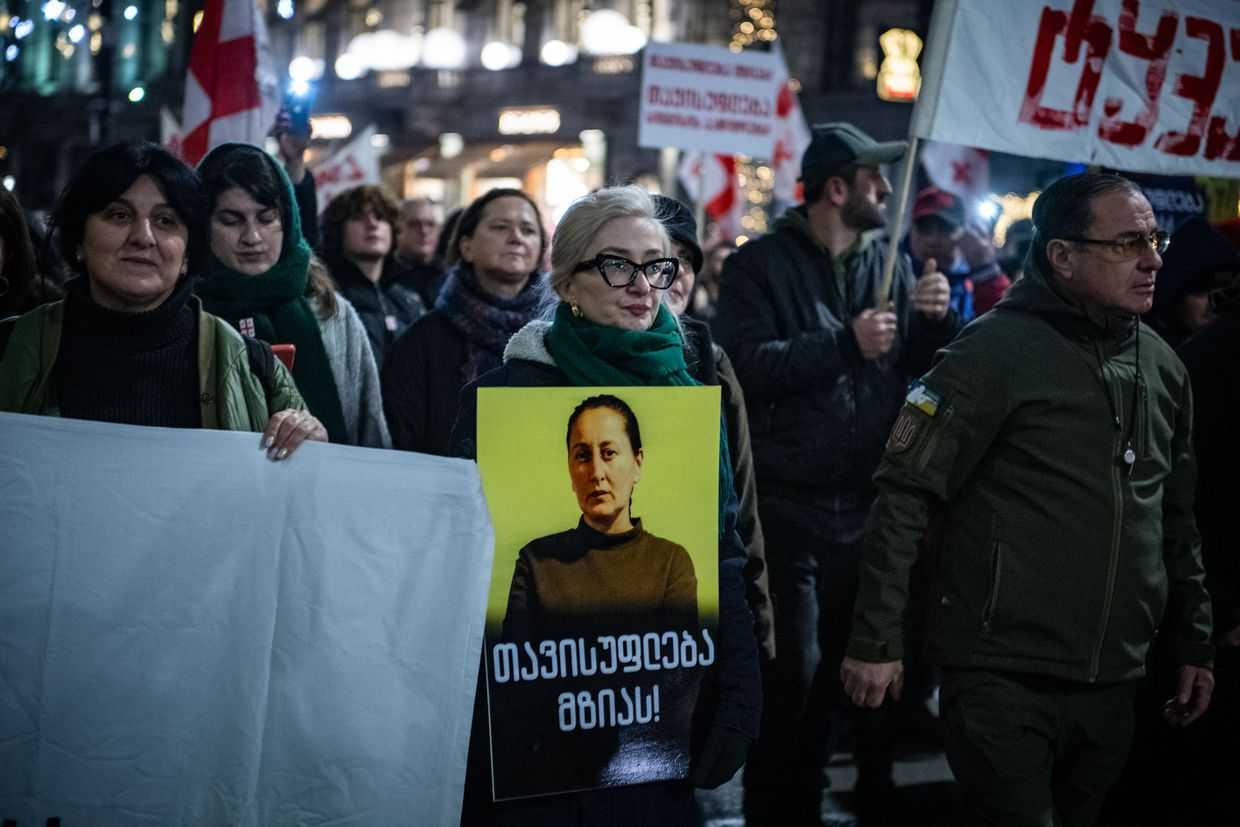Armenia makes gains as Georgia continues freefall in latest RSF Press Freedom Index

Press Freedom has continued to improve in Armenia as it has continued to plummet in Georgia, according to the latest press freedom index from Reporters Without Borders.
In its 2025 report, Georgia continued its slide, falling 11 places to 114th in the world after plummeting 26 places the previous year and 29 places the year before.
In contrast, Armenia continued to climb, reaching 34th place in the world, the highest of any country in the Caucasus since the index began. Armenia continued to outpace EU countries like Italy and Croatia, as well as the US.
Azerbaijan fell further still to 167th out of 180 countries, falling below Belarus but less so than Russia, to remain the second worst in Europe.
The latest index showed the latest in an over 10-year decline in press freedom worldwide, according to RSF. The organisation said the 2025 index was the first time they had reported that the conditions for practising journalism were ‘difficult’ or ‘very serious’ in over half of countries, and satisfactory in fewer than one in four.
In its 2025 report, RSF classified the situation for journalists in Georgia as ‘difficult’, the second worst category.
Since a highpoint in 2021, Georgia has fallen from 60th place to 114, a staggering 54 places over just four years. This represents Georgia’s lowest position on the index except for the year 2008, after the government raided TV station Imedi.

In its 2025 report, RSF said the environment ‘remains hostile for independent and opposition media’ citing a ‘growing number of verbal and physical attacks against journalists’. They added that new ‘repressive’ legislation exposed journalists to censorship and ‘reduces space for free speech’.

The report classified the situation for journalists in Armenia as ‘satisfactory’. However, it warned that the media remained polarised, and that the country faced ‘an unprecedented level of disinformation and hate speech fed by internal political tension, security problems at the country’s borders and the country’s complicated position between Russia and the European Union.’
RSF continued to classify the situation for journalists in Azerbaijan as ‘very serious’, accusing President Ilham Aliyev of destroying ‘any semblance of pluralism’ and since 2014 waging ‘a merciless war against any remaining critics’.
‘A new wave of fierce repression against the country’s last remaining journalists started in November 2023’, RSF wrote.

‘Without economic independence, there can be no free press.’
RSF attributed much of the decline in the 2025 index to economic pressure on publishers.
‘Much of this is due to ownership concentration, pressure from advertisers and financial backers, and public aid that is restricted, absent or allocated in an opaque manner’, the RSF said. ‘The data measured by the RSF Index’s economic indicator clearly shows that today’s news media are caught between preserving their editorial independence and ensuring their economic survival’.
A number of media outlets in the Caucasus have been affected by sweeping cuts to US foreign aid. In Georgia, this has been exacerbated by financial restrictions imposed by the government. OC Media understands that several Georgian media publishers face imminent closure.
Following Georgia’s introduction of the foreign agent law, OC Media unveiled a membership programme to transition from donor to reader funding. In 2025, following the US aid cuts, OC Media also rolled out an advertising offer to help raise revenue.
‘Guaranteeing freedom, independence and plurality in today’s media landscape requires stable and transparent financial conditions’, said RSF Editorial Director Anne Bocandé. ‘Without economic independence, there can be no free press’.
‘When news media are financially strained, they are drawn into a race to attract audiences at the expense of quality reporting, and can fall prey to the oligarchs and public authorities who seek to exploit them. When journalists are impoverished, they no longer have the means to resist the enemies of the press — those who champion disinformation and propaganda’, Bocandé said.
‘The media economy must urgently be restored to a state that is conducive to journalism and ensures the production of reliable information, which is inherently costly. Solutions exist and must be deployed on a large scale. The media’s financial independence is a necessary condition for ensuring free, trustworthy information that serves the public interest’.










